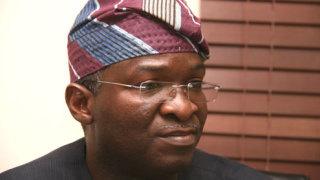With over 8 lakh vehicles worth up to Rs 20,000 crore hit by the Supreme Court order to ban BS III vehicles from April 1, auto companies are scrambling to liquidate stocks and upgrade besides considering export options to minimise the impact.
According to industry estimates the total value of the impacted vehicles is between Rs 15,000 to Rs 20,000 crore. Around 6.71 lakh two-wheelers, 97,000 commercial vehicles and over 40,000 three wheelers are affected by the ban. “Given the current demand,
“Given the current demand, majority of the vehicles in the pipeline have already been sold. Some more will be sold in the next couple of days where we have customer orders,” Ashok Leyland MD and CEO Vinod K Dasari said in a statement. The little inventory that is left would be exported to other markets where the company has
The little inventory that is left would be exported to other markets where the company has significant presence and which still operate on BS III norms, he added. “Finally, for any other vehicles still leftover, the company confirms that it will be able to easily upgrade them to BS IV at minimal cost,” Dasari said. Dasari, who is also the President of
“Finally, for any other vehicles still leftover, the company confirms that it will be able to easily upgrade them to BS IV at minimal cost,” Dasari said. Dasari, who is also the President of
Dasari, who is also the President of industry body SIAM, said the Supreme Court verdict banning BS III vehicles from April will have to be respected but it is “frustrating” that the existing law allowing sale of these vehicles was ignored.
He said commercial vehicle makers have been producing BS IV units since 2010 but they have been selling BS III for the last seven years because of lack of fuel.
Stating that as per government notification, sales of BS III vehicles were allowed after April 1, he said: “Now suddenly those BS III vehicles are banned. I find it quite frustrating that something like this happens.”
The main issue for the industry has been the availability of BS IV fuel across the country, he added.
On the impact of the verdict, Dasari said: “There will be utter chaos in the next few days for the dealers and the finance companies which have sold BS III.”
Country’s largest two wheeler maker Hero MotoCorp said it carefully planned a proactive move to switch from BS III to BS IV compliant products across all its range well in time and have been producing only BS IV compliant products since one month before the given deadline.
“We have reduced our inventory significantly in the past few months with the aim to minimise our stakeholder losses. However, environmental protection will take precedence over temporary financial benefits,” Hero MotoCorp Chairman , Managing Director and CEO Pawan Munjal said.
Supporting the Supreme Court order, Daimler India Commercial Vehicles Managing Director and CEO Erich Nesselhauf said: “Today’s decision of the Supreme Court reassures us in our belief that industry interests must go together with the interests of the society at large.”
The BS-IV standard will bring much needed improvements in terms of air quality, to the benefit of the people and the environment, he added.
“At BharatBenz, we had made the strategic decision last year to only focus on BS-IV vehicles…consequently, we gradually phased out BS-III in our business system and have made the switch to produce only BS-IV vehicles in March, exactly according to plan,” Nesselhauf said.
Bajaj Auto Managing Director Rajiv Bajaj said: “There are some things on which you can’t put a price. This is for the future of our children. This is a matter of principle.”
Although the notification says “production, not sales from April 1”, but “you have to read what is unwritten”, he said.
Similarly, Toyota Kirloskar Motor Vice-Chairman Vikram Kirloskar said: “We have to go towards meeting global standards of emission and safety, and that is the only way forward.”
Toyota Kirloskar stopped manufacturing of BS III vehicles more than a year ago and all its vehicles currently being sold in India are BS IV compliant.
Two-wheeler maker Honda Motorcycle and Scooter India said: “We respect the honourable Supreme Court’s decision and confirm that all our products comply with BSIV norms.”
Car market leader Maruti Suzuki is least affected by the order and has been making BS IV vehicles since 2010. Hyundai Motor India said it respects the court’s decision and confirmed that all its products complied with BS IV norms.
Commenting on the implications of the order, EY Partner and automotive sector leader Rakesh Batra said: “The Supreme Court decision will result in difficulties for the entire automotive value chain, on top of cost increases to comply with BSIV vehicle production and GST implementation.”
This industry works globally on 20 to 30 days inventory within the distribution channel and this should have considered as part of the transition plan when migrating from BS III to BS IV, he added.
“Unfortunately a last minute decision does not help any of the industry stakeholders or consumers, in the month of March when volumes are higher due to year-end purchases and deals,” Batra said.
Credit rating agency ICRA said that CV segment will be the most impacted on account of sizeable inventory levels and due to potential costs associated with inventory re-call from dealers and upgradation to BS-IV norms.
Go to Source

